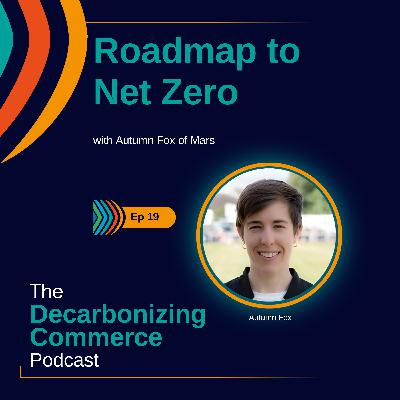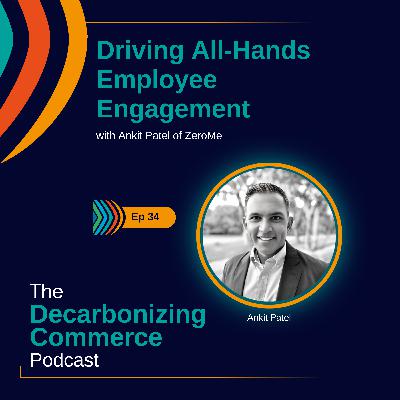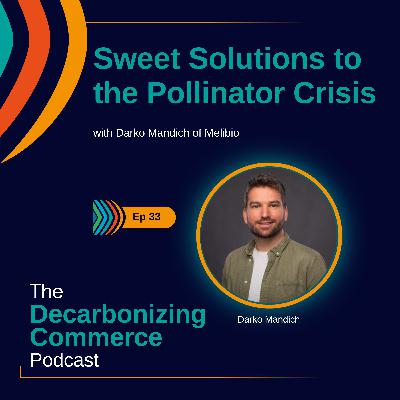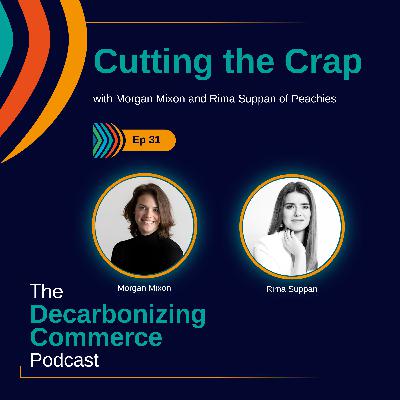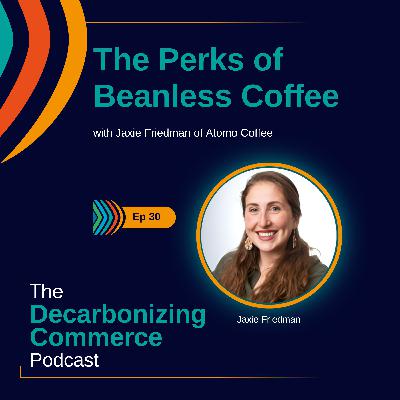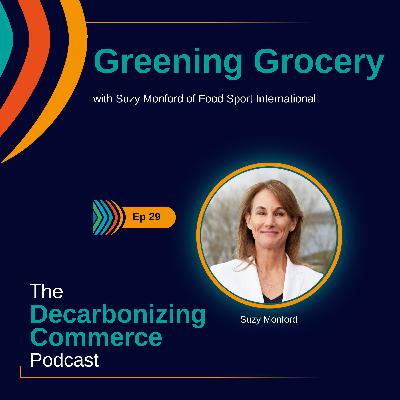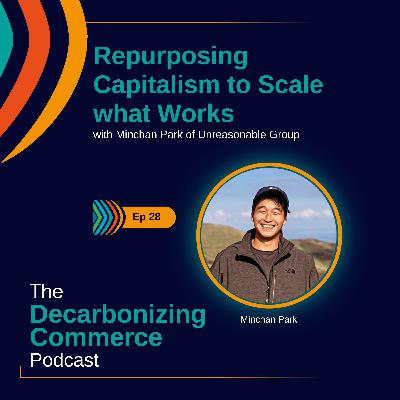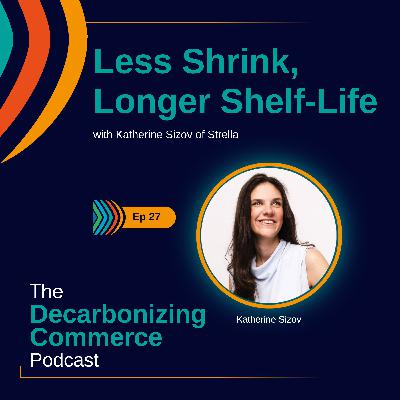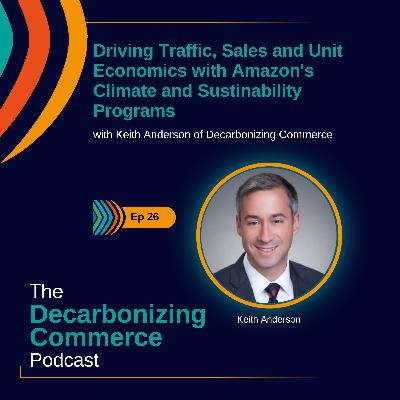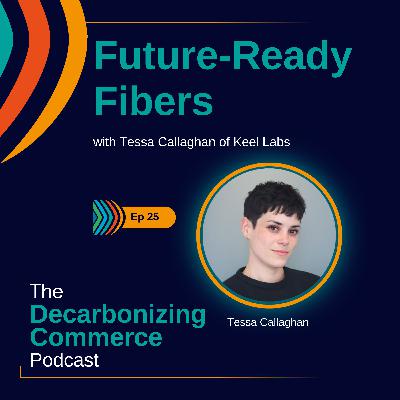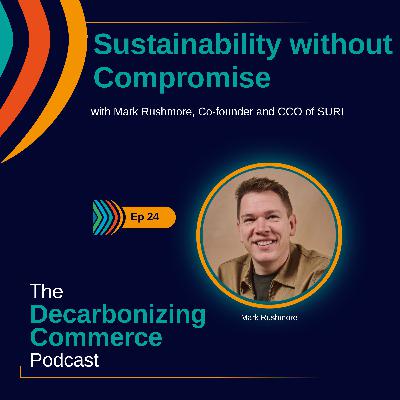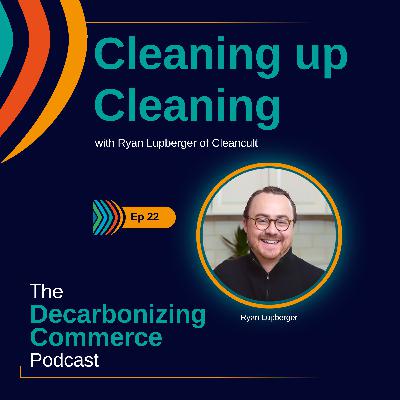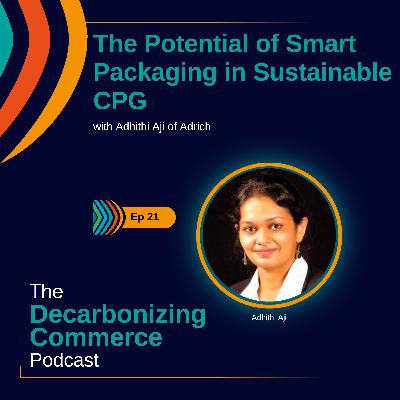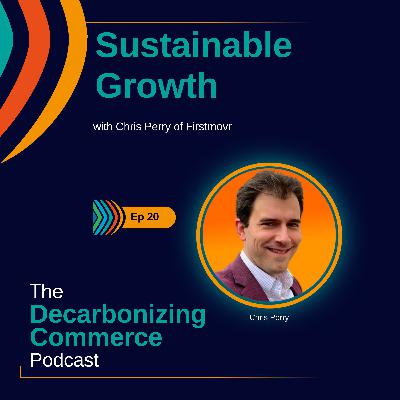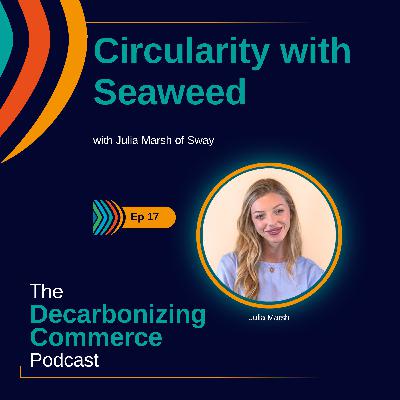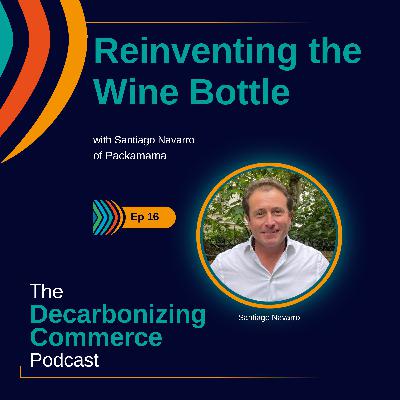Roadmap to Net Zero with Autumn Fox of Mars
Update: 2024-03-14
Description
Join Keith Anderson as he meets and learns from our guest this week, Autumn Fox, Climate Sustainability Senior Manager for Mars. Together they discuss the company’s roadmap to net zero emissions, looking at how far they’ve come and how they, and the rest of the industry, might continue to move forward. Together they touch on plans that affect agriculture, retail, packaging, and logistics.
Learn more about the Mars Net Zero Roadmap
- Link to Mars’s website
- Mars Pledges Fresh Climate Action to Achieve Net Zero Emissions Across Full...
To listen to the full episode join our Plus or Pro memberships at decarbonize.co:
If you enjoyed this episode then please:
- Follow, rate, and review on Apple Podcasts
- Follow and rate on Spotify
Learn more about Decarbonizing Commerce at decarbonize.co
TRANSCRIPT BELOW:
Keith Anderson: Welcome to Decarbonizing Commerce, where we explore what's new, interesting, and actionable at the intersection of climate innovation and commerce. I'm your host, Keith Anderson, and together we'll meet entrepreneurs and innovators reinventing retail, e-commerce, and consumer products through the lenses of low carbon and commercial viability.
TRANSCRIPT BELOW:
Keith Anderson: Welcome to Decarbonizing Commerce, where we explore what's new, interesting, and actionable at the intersection of climate innovation and commerce. I'm your host, Keith Anderson, and together we'll meet entrepreneurs and innovators reinventing retail, e-commerce, and consumer products through the lenses of low carbon and commercial viability.
This is the Decarbonizing Commerce podcast. I'm Keith Anderson. Thank you for listening. Last fall, the Mars Company published details of its Net Zero Roadmap, which is among the most ambitious decarbonization plans I've seen in the industry. Mars has a climate footprint, roughly equivalent to the country of Finland.
And they've already reduced emissions by 8 percent from a 2015 baseline, despite increasing sales within 60% over the same period. But their new net zero target is to reduce their full value chain emissions by half by 2030 versus the same 2015 baseline, and by 80% by 2050. They've committed a billion dollars over the next three years, and they estimate that it'll take roughly 1 percent of annual sales to get to that 50% reduction by 2030. And Mars is a food company, so as you might suspect, a huge percentage of the emissions reductions that are planned are in agriculture and land use, but some of their plans also affect retail, packaging, and logistics.
So, I was really excited when I had the opportunity to interview somebody from Mars that worked directly on the Net Zero Roadmap. And our guest this week is Autumn Fox, the Climate Sustainability Senior Manager for Mars, who, in her role, leads the climate and land impact areas for the Mars Sustainable in a Generation Plan.
Autumn has been with Mars for more than a decade in a variety of roles, sales, R&D, and commercial. She was previously a sustainable sourcing manager in the Mars Wrigley business, where she chaired the SAI platform, Sustainable Dairy Partnership, and Autumn has a background in biology and is a published author in ecology and cancer biology.
Like I say, I think this is a really great example of where the industry is ultimately headed and I was delighted to meet Autumn and learn from her. So let's meet Autumn Fox of Mars Incorporated.
Autumn, we're recording on a Friday morning, so happy Friday, and thanks for joining the Decarbonizing Commerce podcast.
Autumn Fox: Thanks, Keith. Thank you for having me here today.
Keith Anderson: I've been very excited for this conversation and, I'm really excited to learn more about you and, and what Mars is doing in this area. You know, last fall, when the company published the Net Zero Roadmap, I was, I, I dug into the detail for longer than I expected to when I opened the PDF.
And so, I think it's going to be a really fascinating discussion for listeners. Maybe we can just start by, learning a bit about you and your journey to working on climate at Mars.
Autumn Fox: Yeah, I'm happy to share. So my journey to this started in college. Part of my biology degree was that I worked on a research study, and that study was looking at the effect of natural gas drilling out west in the US on elk and mule deer. And while I was out there, I was spending time in this relatively remote part of the US.
It looked very forested and natural, but what I learned was that it was dissected with all of the development and the roads to access the natural gas wells. And it was apparent that this was really a deeply impacted and fragmented landscape, and it created this interest that I have now in the overlap between business and ecology.
And I ended up at Mars. I've been here my whole career, essentially, but I've been in a variety of parts of the business. I've gotten to be in sales and work on the performance metrics of our sales team. I've gotten to be involved with our innovation project process. I've gotten to be involved with our innovation process in R&D and looking at how we procure sustainably for ingredients like our dairy, our tree nuts, our vanilla. And so all that then has brought me to this place now. I'm part of our corporate team on sustainability, and I lead our work on climate change, land use, and deforestation and conversion of natural systems.
Keith Anderson: I think that rotational experience in different parts of the company is, it's somewhat common in CPG companies from what I've seen, but I don't know how common it is in climate and sustainability. Is it something that you pursued, or is that something that the company does with intent?
Autumn Fox: You know, one of the things I love about Mars is that it's really focused on development and really gives some freedom for associates to chart their own path and really work through the career path that they're interested in. So I've had a lot of support over the years from my managers to keep developing.
I, I do think in Mars, at least we see a lot of this. We have a lot of people in sustainability who are coming, especially from procurement or R&D and bringing a lot of the skills that are needed to excel in those areas to work on sustainability issues.
Keith Anderson: It makes a ton of sense. I mean, that, that is, as we discussed briefly before we were recording, so much of our focus is at the intersection of all of these commercial decisions that impact both climate and commercial outcomes. And so I think it's really interesting and important to see that kind of cross pollination happening inside the business.
Well, I think the main topic for discussion today is the Net Zero Roadmap that I know you played a key role in helping develop. I imagine some folks listening aren't totally clear on what "net zero" means. So can you define it?
Autumn Fox: Absolutely. I know there's a lot of confusion out there on terms like "net zero" and "carbon neutral" or "climate positive." It's a real jungle right now. Net zero is a concept that, you know, really was defined by the United Nations and a group called the Science Based Targets Initiative. At its most basic, net zero means a balance between greenhouse gases that are emitted to the atmosphere and greenhouse gases that are removed from the atmosphere and stored somewhere.
That's at a global level, and we're pretty far from that, to be frank. At a company level, net zero means the same thing, but with a certain order of operations. So first, a company needs to dramatically reduce the emissions associated with their value chain on the order of 80% to 90% depending on the industry. Then once the company has really dramatically reduced their emissions, there's going to be some residual emissions that last 10 or 20%.
Those might be very difficult or impossible to, to stop. And so those can then be neutralized or offset using carbon removal credits.
Keith Anderson: Makes sense. And can you tell us about the Net Zero Roadmap and what some of the pillars of it are?
Autumn Fox: Absolutely.
So, the Net Zero Roadmap is a publication that we put out last fall, after we had announced our commitment to cutting in half our emissions by 2030 and achieving net zero by 2050. And in the roadmap, we're really laying out our plan to 2030 in a fair amount of detail, and we've done a lot of analysis to support this, to assure our business leaders that this is the right choice to make.
And the great news is that we found that cutting our emissions in half by 2030 is achievable. We can do it. The solutions are available, they're ready to be deployed, and we really just need to deploy them at scale in our supply chain. The other thing that we found is actually that it's also affordable.
It'll cost us, we think, about 1 percent of sales annually. And I know that perhaps could be debatable whether that is affordable or not, but when we think about an investment to address the really most existential threat to our business and to our families, you know, that's pretty affordable.
And what we're
Comments
In Channel

